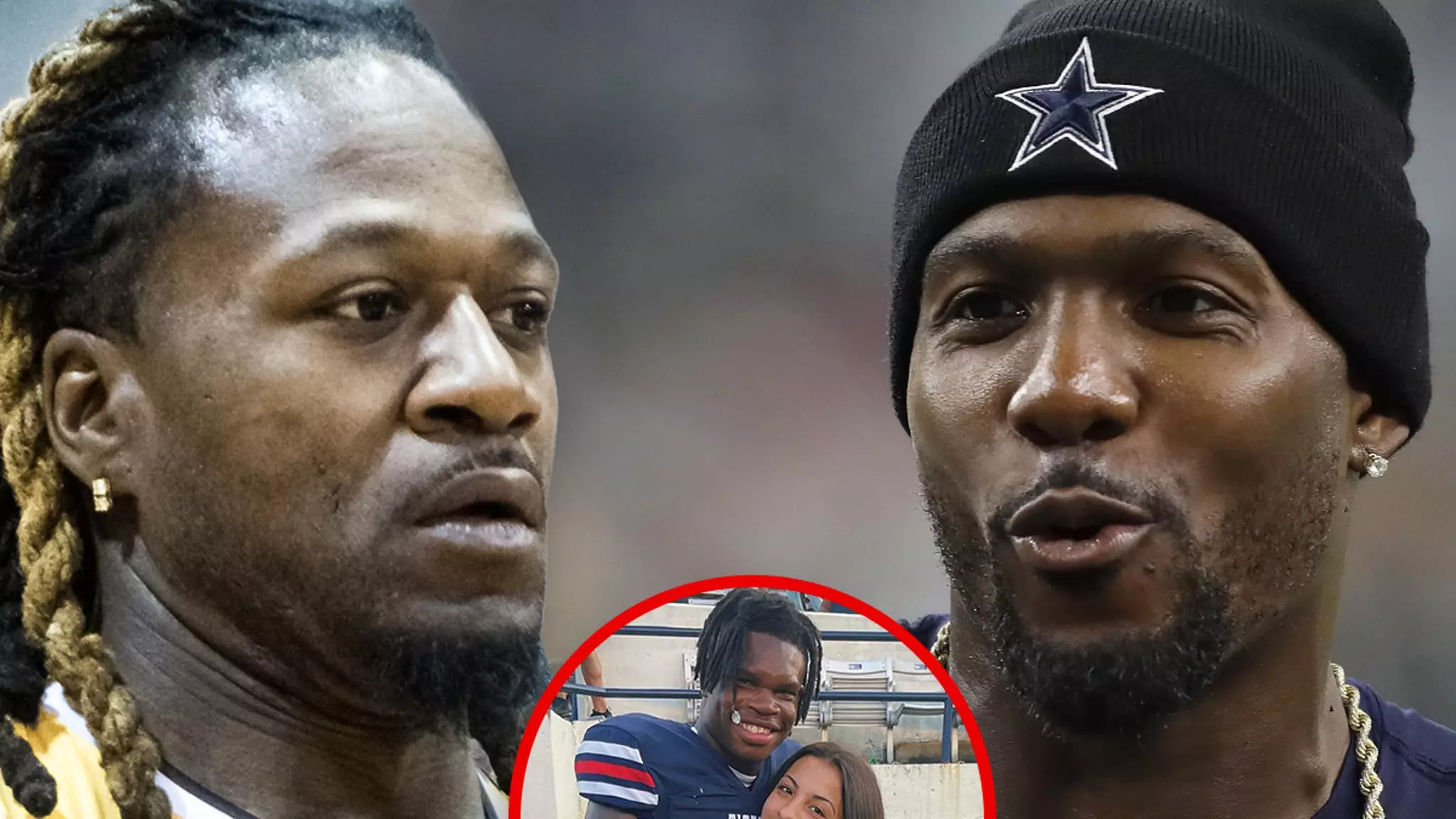In the fast-paced world of sports, athletes often find themselves thrust into the limelight, not only for their performances but also for their personal lives. Recent events surrounding university football star Travis Hunter and his fiancée, Leanna Lenee, have illustrated the complexities that come with relationships in the public eye. The ongoing speculation and commentary by former NFL player Dez Bryant has brought to light a broader conversation about the complications of public scrutiny and the need for privacy.
Recently, Pacman Jones, a former cornerback with a history of vocal defenses for his peers, vociferously defended Hunter against Bryant’s unwarranted analysis. In an episode of his podcast, Jones voiced his discontent with the continuing scrutiny of Hunter’s relationship, passionately insisting that outside opinions should be silenced. This perspective resonates with many, as it highlights the discomfort athletes frequently face when their personal lives become fodder for public debate.
Jones’ main argument centers on the fundamental right of individuals to choose their partners without external judgment. He articulated the sentiment that observers and critics alike often lack the complete context surrounding a relationship. It raises the question: how well can the public actually understand the dynamics that occur behind closed doors?
The Fine Line Between Support and Intrusiveness
Criticism from former peers, such as Bryant, often comes from a place of concern, yet this concern can rapidly shift into unwarranted intrusiveness. While it’s natural for fans and fellow athletes to discuss significant relationships in the sports community, it becomes problematic when those discussions cross the threshold into unsolicited advice. Bryant’s urge for Hunter to reconsider his partner is not just an intrusion; it’s a reminder of how public figures can become targets of widespread opinions based on limited observations.
Social media platforms amplify this problem. Often, a single tweet or post can catalyze a flurry of similar commentary, leaving the individuals involved feeling helpless against a wave of judgement. Athletes need not only to perform at their best but also to navigate the treacherous waters of public opinion when it comes to relationships.
As Jones suggested in his passionate outburst, it is imperative that both fans and former players respect the boundaries of personal relationships, acknowledging that what may be visible is only a fraction of the entire story. Without a profound understanding of the complexities individuals face, forming opinions about their private lives can not only be unfair but also harmful.
Ultimately, the Hernandez-Lenee saga serves as a crucial reminder of the human element that underpins every athlete’s career. As spectators, we must remember that these individuals experience love, conflict, and the challenges of relationships in ways that are often obscured from public view. Respect for their privacy may be the first step in fostering healthier discussions surrounding the interplay between sports and personal life. The call for insular respect in society’s commentary on relationships—especially those under the unyielding spotlight—is more pressing than ever.

